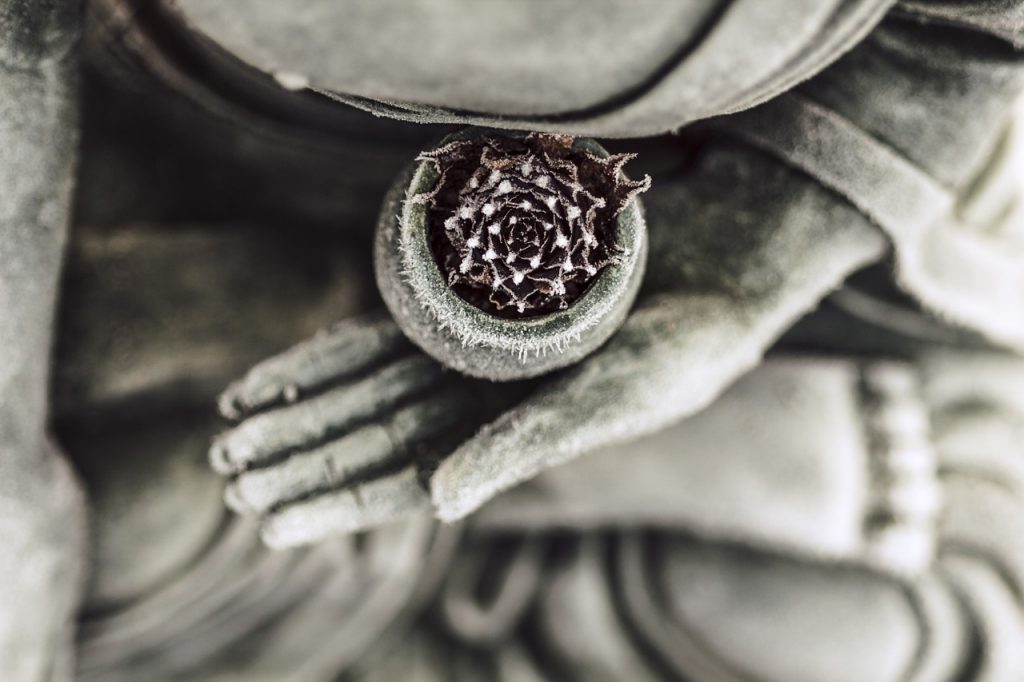What is Zen?
Zen is very simple. It is about the true essence of all things, without attachments or opinions. It is not a belief system, nor is it a dogma. Zen is a system of doing. Doing what? It is a doing which imbues a rare sense of dignity- free from attachments, balanced, self-reliant and open. Zen enables us to wake up to the delusions and attachments of human existence.
Dogen Zenji, a great 13th Century Japanese Zen Master, wrote: “To learn the way of Zen is to learn about oneself. To learn about oneself is to forget oneself. To forget oneself is to perceive oneself as all things. To realize this is to cast off body and mind.”

Zen means finding my True Self: Who am I? Why was I born? Why will I die? Zen points directly to our True Nature through mindfulness practice, using each moment as a tool, a teacher, enabling each and everyone to embark on this exciting journey of exploration into fully understanding the nature of self.
Zen practice requires a BIG question alongside great determination. The formal aspect of Zen training includes periods of seclusion called retreats, during which time we do prostrations, chanting, sitting Zen, walking and working Zen, as well as consulting and Kong-An interviews, meditation instruction and talks related to practice.
Glossary of Zen Terms
Bodhisattva (Sanskrit)
A being whose actions promote unity or harmony; one who vows to postpone one’s own enlightenment in order to help all sentient beings realize liberation; one who seeks enlightenment not only for oneself but for others. The bodhisattva ideal is at the heart of Mahayana and Zen Buddhism.
Buddha (Sanskrit)
An awakened one; refers usually to Siddharta Gautama (sixth century BC), historic founder of Buddhism.
Dharma (Sanskrit)
The way or law; the path; basically Buddhist teaching but in a wider sense any teaching or truth.
Dharma Room
The meditation/ceremony hall
Inka (Korean)
‘Public seal’; certification of a student’s completion of, or breakthrough in, kong-an practice.
Karma (Sanskrit)
‘Cause and effect’ and the continuing process of action and reaction, accounting for the interpenetration of all phenomenon. Thus our present thoughts, actions and situations are the result of what we have done in the past, and our future thoughts actions and situations will be the product of what we are doing now. Individual karma results from this process.
Kasa (Korean)
Brown piece of cloth worn around the neck or over the shoulders, symbolic of Buddhist vows and precepts
Kong-an (Korean, Japanese koan)
A paradoxical or irrational statement used by Zen teachers to cut through students’ thinking and bring them to realisation.
Kyol Che (Korean)
Means ‘Tight Dharma.’ Form of retreat, traditionally for a period of 3 months, held twice a year. In South Africa usually held for one month in summer and one month in winter with a minimum sitting time of 1 week.
Sangha (Sanskrit)
The community of all practitioners; may refer to a family of students under a particular master/teacher.
Sutra (Sanskrit)
Buddhist scriptures, consisting of discourses by the Buddha and his disciples.
Yong Maeng Jong Jin (YMJJ; Korean)
“To leap like a tiger while sitting,” is a 3- or 7-day silent retreat held at the Zen Centres usually once a month.
Zen (Japanese, Korean Son, Chinese Ch’an, Sanskrit Dhyana)
Meditation practice.
